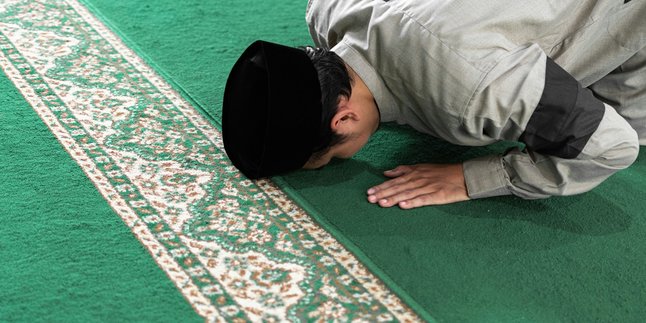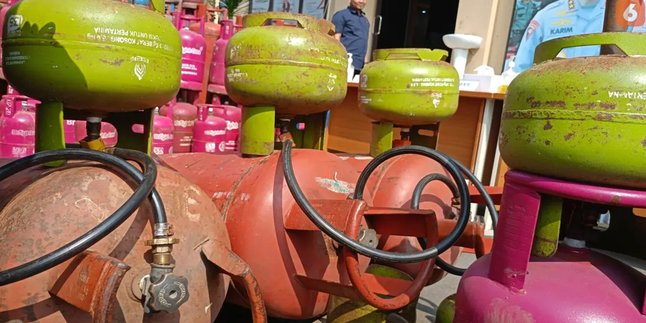Kapanlagi.com - Zakat mal, as one of the main pillars in Islamic teachings, plays a very important role in purifying wealth and helping others. Understanding the mandatory conditions for zakat mal well is the key to fulfilling this worship correctly and meaningfully.
In this article, we will explore the six mandatory conditions for zakat mal that need to be fulfilled by every Muslim who has excess wealth. With a deep understanding of these conditions, we can ensure that the zakat we pay is truly in accordance with the guidance of Islamic law.
The mandatory conditions for zakat mal are not just formalities, but guidelines that ensure that the wealth being donated is appropriate and targeted. By knowing these conditions in detail, we can calculate and fulfill zakat more carefully and accurately.
For a more complete explanation, check out the summary from Kapanlagi.com that we present from various sources on Wednesday (12/2). Let us together delve into and practice the worship of zakat as best as we can!
1. Perfect Ownership (Full Ownership)
The main requirement that must be met to fulfill zakat mal is perfect and valid ownership. This means that the wealth to be zakat must fully belong to you and come from a halal source, without any disputes, loans, or ownership by others.
For example, if you own gold bars purchased with halal money, then that gold qualifies. However, if the gold is still in dispute, zakat cannot be given.
It is important to ensure that the wealth owned is free from elements of riba (usury), gharar (ambiguity), or maysir (gambling), so that the zakat given truly comes from legitimate wealth and does not harm others.
If you are unsure about the status of your ownership of wealth, it is advisable to consult with a scholar or a trusted zakat institution.
2. Developing Wealth (Productive or Potentially Productive)
The second requirement in zakat mal is that the wealth must have the potential to grow or has already grown, such as gold, silver, cash, agricultural products, trade, and halal investments.
Antique items whose values are stagnant or declining are not included. The key point is the ability of the wealth to provide benefits or added value, even if not always in the form of money.
For example, fertile agricultural land is considered growing wealth due to its potential yield in the future.
Conversely, wealth that does not have growth prospects, such as used goods whose values have depreciated, is generally not subject to zakat mal.
3. Reaching Nisab
Reaching nisab is an important step in fulfilling the obligation of zakat mal, where nisab is the minimum limit of wealth that must be owned for zakat to be obligatory.
Each type of wealth has a different nisab value; for gold, the limit is 85 grams, while for cash, the nisab is equivalent to the value of 85 grams of fluctuating gold.
It is important to monitor the current nisab value through official zakat institutions or scholars. Accuracy in determining nisab ensures that the zakat obligation is fulfilled correctly and maintains fairness in the practice of zakat.
4. Exceeding Basic Needs
The fourth condition in fulfilling zakat mal is that the wealth owned must exceed the basic needs of oneself and family for one year, including clothing, food, and shelter.
This need is relative, so it is important to ensure that the remaining wealth reaches the nisab after fulfilling basic needs.
Evaluation should be done carefully and realistically, avoiding calculations that are too loose or too strict.
If in doubt, consult with scholars or zakat institutions to ensure the correct calculation of zakat that does not disrupt daily life, so that the zakat given truly comes from excess wealth and is beneficial for those in need.
5. Free from Debt
The fifth condition that must be met in zakat mal is that the wealth owned must be free from debt.
If someone is in debt, the amount of debt must be deducted from the total wealth before determining whether the wealth has reached the specified nisab.
Only after the debt is deducted can the remaining wealth be assessed to meet the zakat requirements.
It is important to note that the debt referred to is a legally recognized debt according to Islamic law; unlawful debt or interest-based debt does not need to be counted.
Therefore, honesty and accuracy in recording debts are crucial to ensure that the calculation of zakat mal is done accurately and correctly.
6. Reaching Haul (One Full Year)
The final condition for zakat mal is the ownership of wealth for one full year (haul), which begins when the wealth reaches nisab. The calculation uses the Hijri year.
It is important to keep track of the ownership of wealth to avoid missing the time to fulfill zakat.
If there is any doubt about the calculation of the haul, it is advisable to consult with scholars or trusted zakat institutions to ensure that the obligation of zakat mal is fulfilled according to Islamic law.
7. Understanding Zakat Mal
Zakat mal is an obligation for every Muslim to purify their wealth and distribute riches to those in need, such as the poor and needy.
Wealth subject to zakat includes money, gold, silver, agricultural products, and certain trade goods.
By fulfilling zakat, Muslims comply with Allah's command, reduce social inequality, and strengthen community bonds.
Zakat is mandated in the Qur'an and Hadith as a form of sacrifice that brings blessings, reminding us to be grateful and share.
Through zakat, we can create a more just and prosperous society, as well as demonstrate a commitment to living with empathy.
(kpl/rao)
Disclaimer: This translation from Bahasa Indonesia to English has been generated by Artificial Intelligence.












